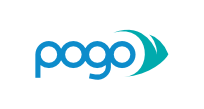We are pleased to announce a call for applications to join a 'South-North Atlantic Training Transect' (SoNoAT) cruise on board the RV Polarstern in June 2019.
The SoNoAT 2019 programme comprises a pre-cruise training (landbased) in Punta Arenas at the end of May 2019, which will be immediately followed by the research cruise, leaving from Port Stanley, Falkland Islands, on 2 June 2019 and ending in Bremerhaven, Germany, on 29 June 2019.
There will be 25 scholarships available for participants, which include travel to the departure port, return flight from Bremerhaven, and all costs involved with living on board during the training.
This 'Floating Summer School' aims to train the ocean experts of the future, and the programme will focus on training postgraduate students (Masters or PhD) of marine-related science and technology. Priority will be given to students from developing countries and countries with economies in transition. Diversity of race, gender and ethnicity will be encouraged and will promote cultural exchange and understanding.
The call for applications will be open from the 5 November until 30 November 2018. Successful candidates will be informed by the middle of December.
Click to view SoNoAT2019 Poster
Click on the link below to apply:





